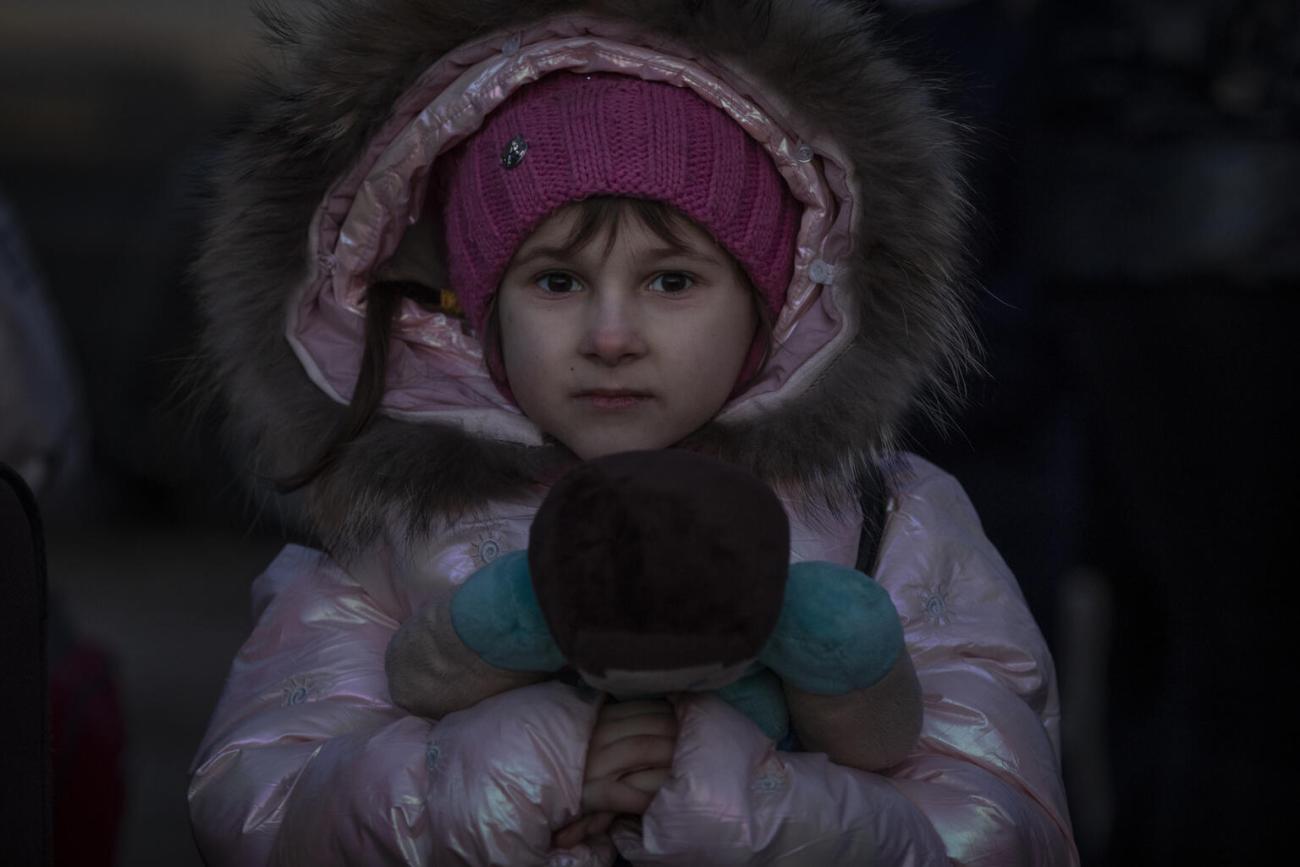"The war has caused the fastest and largest displacement of people in Europe since World War II"

// Statement by Osnat Lubrani, UN Resident & Humanitarian Coordinator in Ukraine //
It has been one very long month since this devastating war started.
This week as I traveled around Ukraine, I have seen damage and suffering that no country, no human should ever experience.
It feels, in fact, as if it’s been a year, since the lives of millions of people have changed forever.
One month since the invasion of Ukraine, the war has caused the fastest and largest displacement of people in Europe since World War II. Ten million people have been forcibly displaced, with more than three million crossing borders in search of safety.
The loss of life and severe trauma caused by attacks on civilian infrastructure, on hospitals, schools and places of shelter are utterly shocking, as is the scale of destruction, with some cities besieged or totally devastated by airstrikes and heavy artillery.
Some 950 civilians have been reported killed although the death toll is estimated to be far higher.
Hundreds of thousands of people trapped in besieged cities like Mariupol, Chernihiv, Kharkiv, Sumy and the capital, Kyiv, and in areas close to the frontlines, are exhausted and running out of the basics needed for human survival, coping with constant bombardment by living in basements without heating, cooking fuel or water.
In the short term, three things are critical: civilians, whether they stay or leave, must be protected; safe passages are needed for humanitarian supplies and personnel; and we need a system of constant communication with parties to the conflict.
The systematic bombardment of cities, towns, hospitals, schools and shelters is terrorizing civilians and causing appalling human suffering. They must be allowed to reach places of safety – and go wherever they choose – while safe passage for humanitarian supplies must be allowed. Heavy weapons must not be used in residential areas. These barbaric tactics must end. All those engaged in fighting must protect civilians, as they are obliged to under international humanitarian law. Even wars have laws.
This grave humanitarian crisis particularly affects the most vulnerable people, especially children, women and girls, the elderly and people with disabilities. We must prioritise vulnerable people and ensure that their health, rights and dignity are safeguarded. And we thank governments for keeping their borders open and facilitating the safe passage of all who need to flee.
To address the massive and growing needs at the speed and scale required, we need constant, free and sustained access. The main humanitarian challenge is to secure safe access in areas with ongoing fighting. Last week, with the establishment of a humanitarian notification system, UN agencies and partners in Ukraine successfully moved the first convoy of urgent humanitarian aid to the encircled city of Sumy in the northeast, one of the areas worst affected by the war. We will continue to facilitate dialogue at all levels for the safe passage of other humanitarian convoys to help the most vulnerable civilians caught in the fighting.
The United Nations and our humanitarian partners have been scaling up aid operations and services to support people inside Ukraine. Humanitarian organizations are now deploying additional staff across the country and we are working round the clock to move supplies and services to reach the 6 million people targeted in the initial humanitarian response plan over the next three months and to complement the work of the local and national authorities, the Ukrainian Red Cross and community organizations. Even this may be insufficient, and we will look to increase our scope even further in the coming weeks.
Yet, the most important part is to end the war completely.
Ukraine and the world need peace.
###
Linked articles
Update on the UN work in Ukraine 23.03.2022
Ukraine: Situation Report as of 23 March 2022




